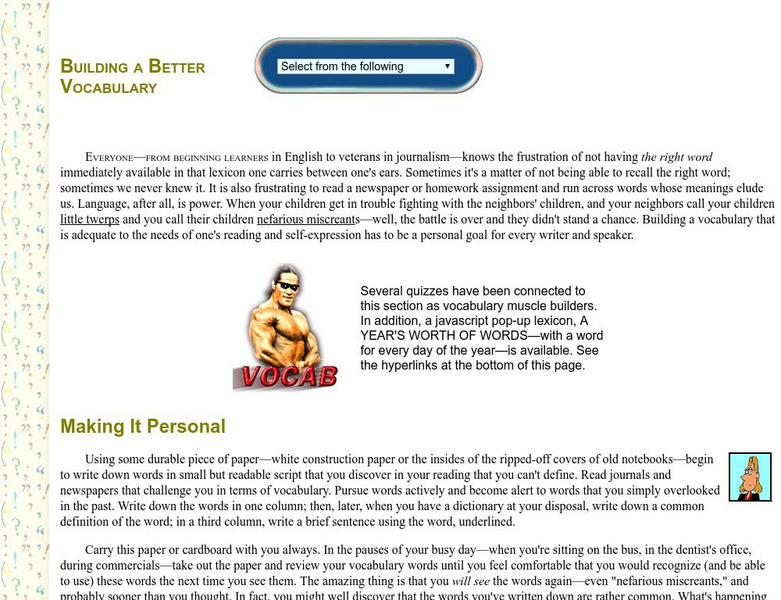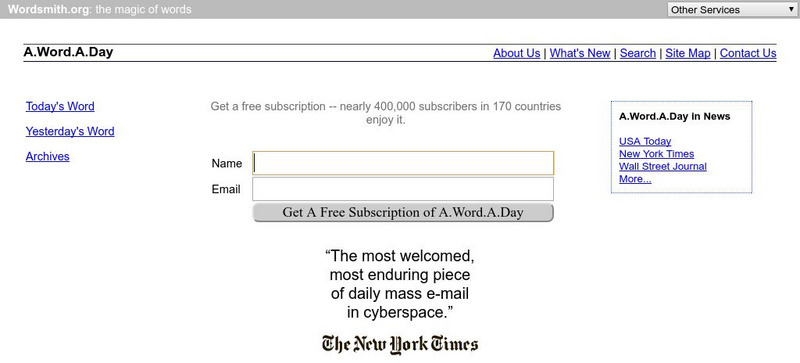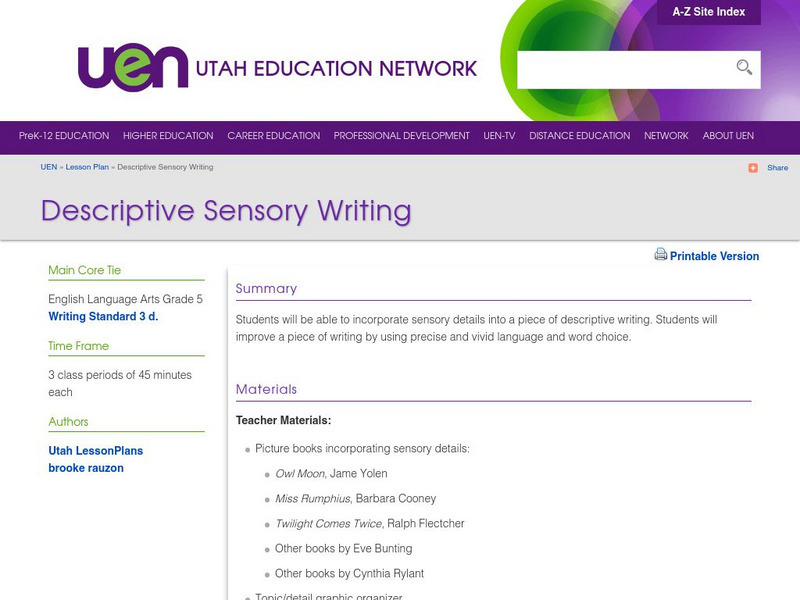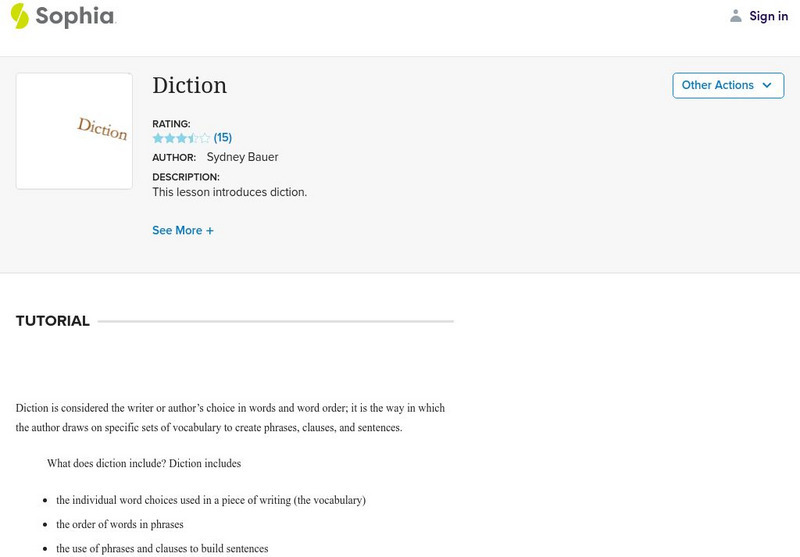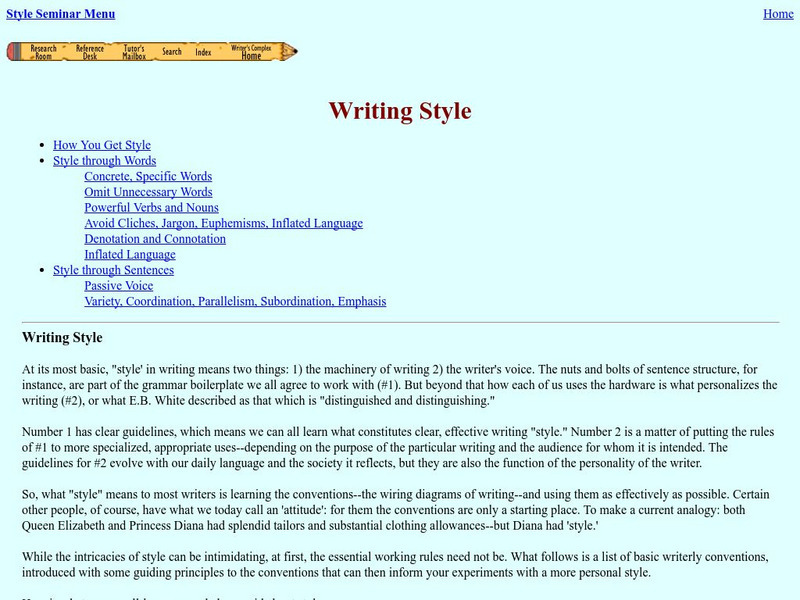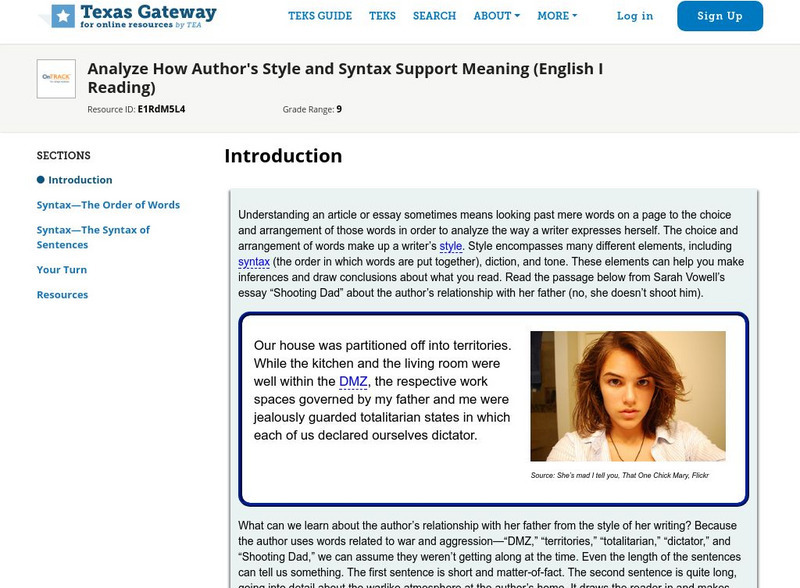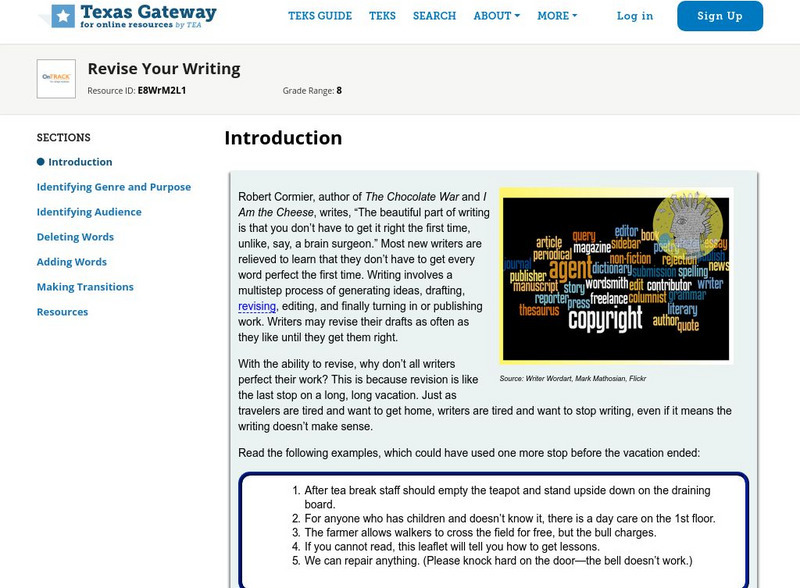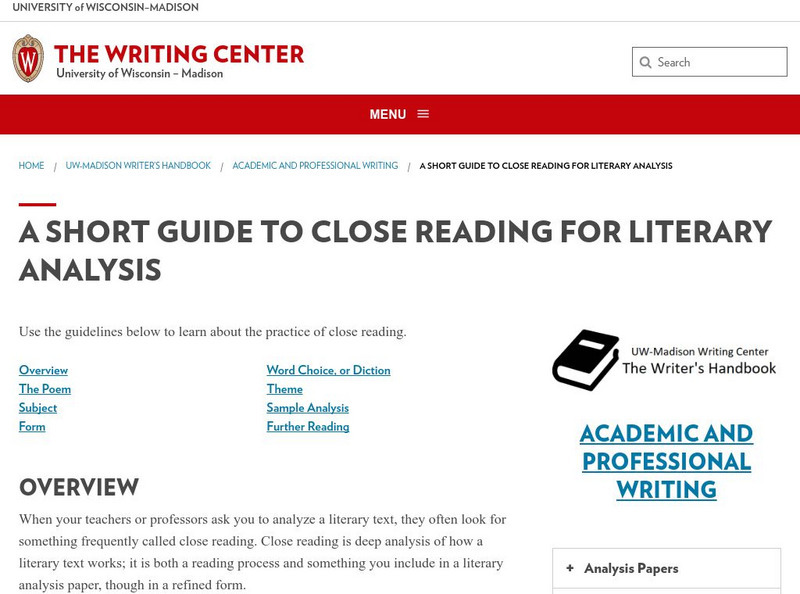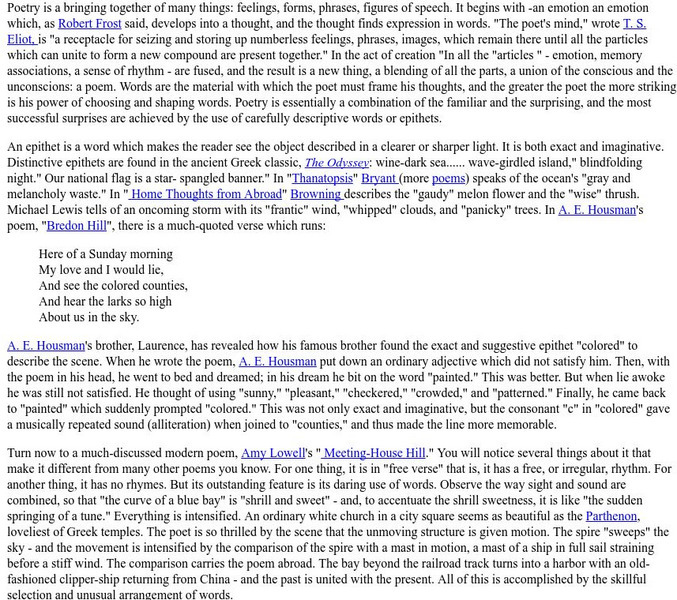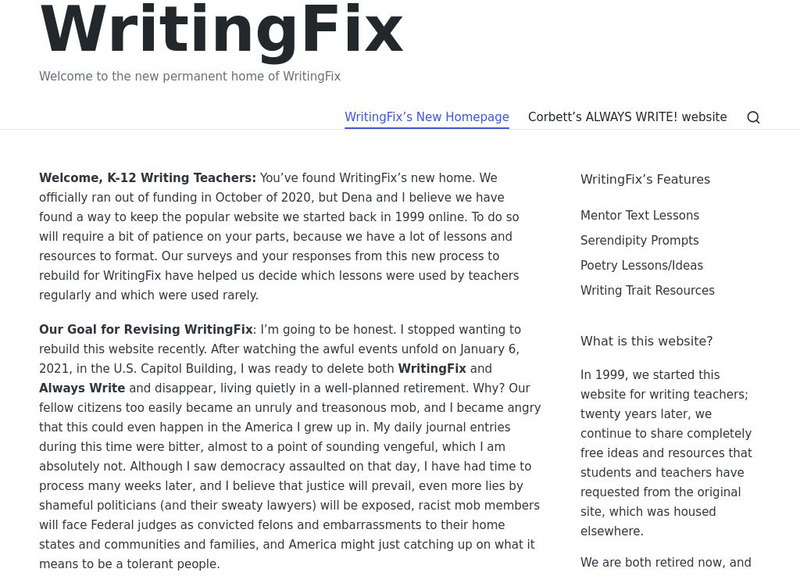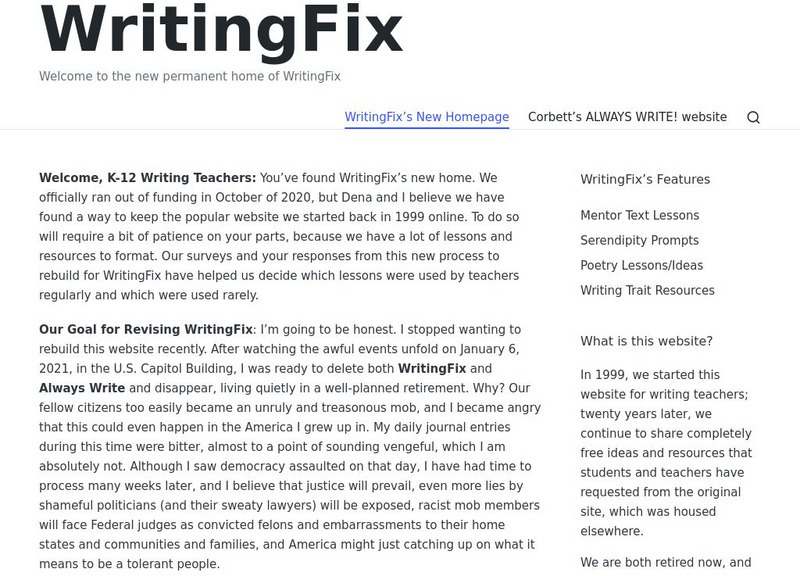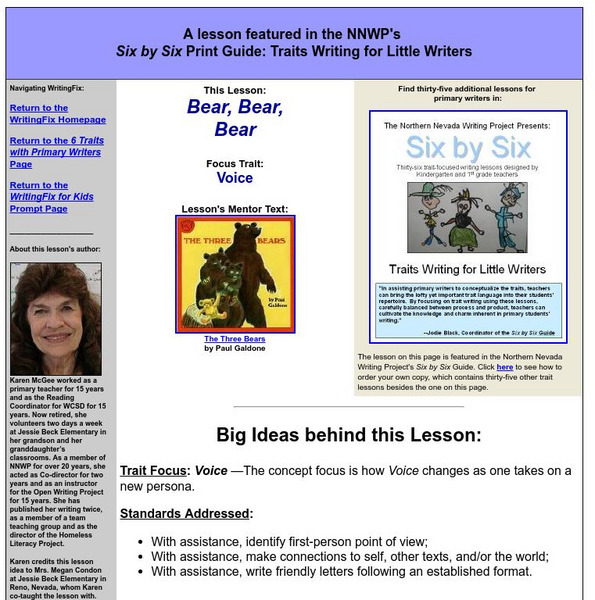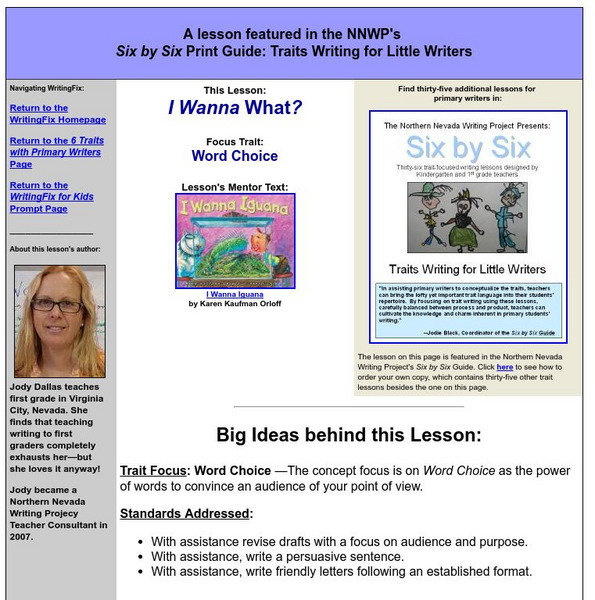Capital Community College Foundation
Guide to Grammar and Writing: Building a Better Vocabulary
A wonderful site for the vocabulary enthusiast. Includes ways to build your vocabulary, resource suggestions, information about word roots, a section on suffixes and prefixes, as well as some higher-level word quizzes.
Grammar Check
Grammar Check: 5 Weak Words to Avoid & What to Use Instead (Infographic)
An infographic is provided to help students replace ineffective word choices. Students will find a list of words to replace vague words and overused phrases.
Other
A. Word. A. Day
Still another site offering you a word a day to build vocabulary and understanding of new words. You can subscribe for free, or check out the archives.
Utah Education Network
Uen: Third Grade Writing Lesson #1/ Descriptive Prompt
Given a descriptive writing prompt, 3rd graders will include precise word choices and sensory language in a piece of writing about their favorite place.
Utah Education Network
Uen: Descriptive Sensory Writing
In this lesson, 5th graders will engage in descriptive writing. Students will improve a piece of writing by using precise word choices that are full of sensory word choices.
Utah Education Network
Uen: I'm So Bright! I Wear My Shades Indoors!
This lesson engages students in learning about light through multiple sources. Students will learn how light is produced, reflected, refracted, and separated. Students will communicate their findings through an independent project that...
Sophia Learning
Sophia: Concise Language Adds Zest!
This slideshow focuses on how to revise writing using concise language by eliminating unnecessary words and redundancy, avoiding generic phrases, using active voice and familiar terms, and looking for just the right words to convey...
Sophia Learning
Sophia: Diction
This lesson uses text and an accompanying audio to discuss diction including its definition, what it includes, and an explanation and an example of how word choice, word order, and phrasing can change the tone of writing.
SUNY Empire State College
Empire State College: Writing Style Seminar
This detailed resource provides a good tutorial on writing style, whether informal or formal. It explains how to get style through word and sentence choice and includes lots of examples. W.9-10.1d & W.9-10.2e Style/tone/conv,...
Other
Sharpening Your Writing Skills
This handbook provides step-by-step modules to help you develop an appropriate business writing style. It also gives you rules for punctuation and "plain English." Answers are provided for exercises. PDF document.
Texas Education Agency
Texas Gateway: Diction and Tone (English Ii Reading)
This lesson will help students identify diction and tone in their reading and will help them answer these questions: What does the author mean? What is the author's attitude about what he or she is writing? How will my understanding of a...
Texas Education Agency
Texas Gateway: Analyze How Author's Style and Syntax Support Meaning
This lesson focuses on understanding an article or essay by looking past mere words on a page to the choice and arrangement of those words in order to analyze the way writers express themselves. The choice and arrangement of words make...
Other
Pressbooks: Virginia Western Community College: Let's Get Writing!
This is an open textbook created to assist students in their writing efforts. Topics covered include critical reading, rhetorical analysis, writing arguments, steps in the writing process, rhetorical modes, using credible sources, citing...
Texas Education Agency
Texas Gateway: Revise Your Writing
[Accessible by TX Educators. Free Registration/Login Required] In this lesson, you will learn to revise your writing for clarity. You will begin by reviewing some major considerations for revision: genre, purpose, and audience. You will...
University of Wisconsin
Univ. Of Wisconsin: Writing Center: Guide to Close Reading for Literary Analysis
This guide discusses how to approach analysis of a literary text, with the main focus being on the poem "Design" by Robert Frost. It explains how to examine the subject, the form, word choice or diction, and the theme. In each section,...
TED Talks
Ted: Ted Ed: The Power of Simple Words
A fun, playful introduction to using short, simple words when attempting to communicate a point of information. [2:02] W.9-10.2d lang/voc
Library of Congress
Loc: Poetry 180: The Meadow
This three-stanza poem describes a poet who asks questions about her soul.
Ted Nellen
Cyber English (By Ted Nellen): Epithet
This is a glossary entry for the term "Epithet" including definitions and examples from a number of poets.
Online Writing Lab at Purdue University
Purdue University Owl: Adding Emphasis in Writing
Catch your reader's eye with your understanding of visual and textual devices.
Writing Fix
Writing Fix: You're on a Gigantic Roll
In this lesson plan the writer will imagine and compose a descriptive paragraph that focuses on a gigantic object moving through a specific setting and leaving destruction in its wake, modeled after the book James and the Giant Peach by...
Writing Fix
Writing Fix: Prose Poetry Paragraphs
Inspired by the vignettes of Sandra Cisneros, students will write about a familiar thing from their lives. Students will use the style of prose poetry to describe something familiar around their home, school or neighborhood. The final...
Writing Fix
Writing Fix: Your Own Faraway Place
For this lesson, students will build background by hearing an excerpt from The Phantom Tollbooth by Norton Juster, an excerpt where the main character, Milo, travels to a distant land that has a distinctive mood: melancholy. Next,...
Writing Fix
Writing Fix: Bear, Bear, Bear
After reading The Three Bears by Paul Galdone, students look at letters written from the point of view of each of the bears to learn how word choice effects voice. Then students practice writing in different voices.
Writing Fix
Writing Fix: I Wanna What?
This lesson is centered on word choice and vocabulary and the book, I Wanna Iguana, by Karen Kaufman Orloff. Young learners learn to grasp the difference between begging and persuading and apply this knowledge to their own persuasive texts.


